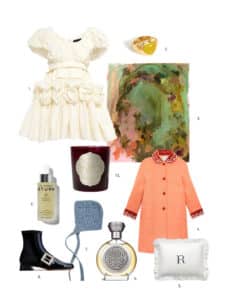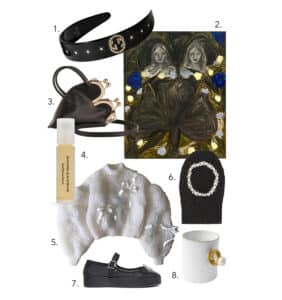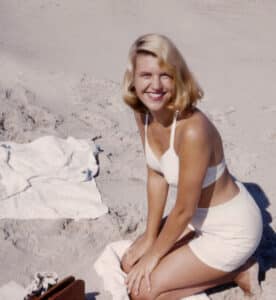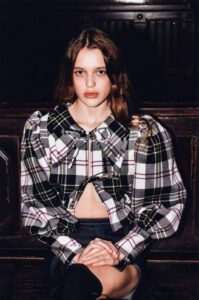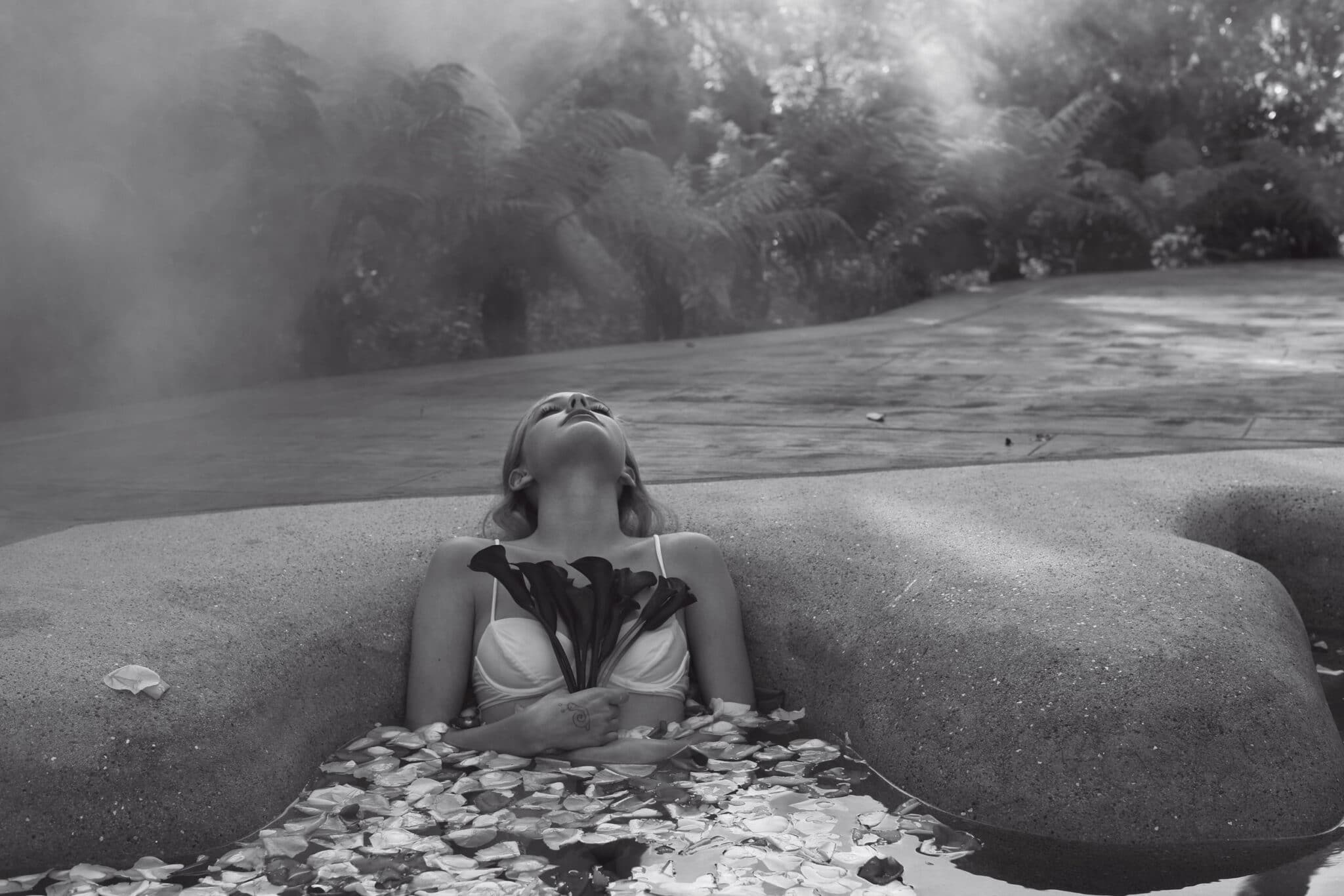
Lula Loves
Lula Loves Love
The 10 poems to read this Valentine’s Day
The following poems embody the feeling of love, whether that’s for a partner, parent or friend. They are worth a read this Valentine’s Day if you are in love, out of love, or recovering from it. In the famous History Boys scene, Alan Bennett wrote that: ‘The best moments in reading are when you come across something – a thought, a feeling, a way of looking at things – which you had thought special and particular to you. Now here it is, set down by someone else, a person you have never met, someone even who is long dead. And it is as if a hand has come out and taken yours.’ Poems mean different things to us at different points in our lives. It’s possible for many of us to trace our lives and experiences through the books we’ve read. We hope that among this fine list, there is one poem that speaks to you over the sometimes challenging holiday. Here is Lula’s gentle reminder to wish a happy day to all your loved ones.
‘Love Is’, Nikki Giovanni, 1943 – present
Some people forget that love is
tucking you in and kissing you
‘Good night’
no matter how young or old you are
Some people don’t remember that
love is
listening and laughing and asking
questions
no matter what your age
Few recognize that love is
commitment, responsibility
no fun at all
unless
Love is
You and me
‘Having a Coke with You’, Frank O’Hara, 1926-1966
is even more fun than going to San Sebastian, Irún, Hendaye,
Biarritz, Bayonne
or being sick to my stomach on the Travesera de Gracia in
Barcelona
partly because in your orange shirt you look like a better happier
St. Sebastian
partly because of my love for you, partly because of your love for
yoghurt
partly because of the fluorescent orange tulips around the birches
partly because of the secrecy our smiles take on before people
and statuary
it is hard to believe when I’m with you that there can be anything
as still
as solemn as unpleasantly definitive as statuary when right
in front of it
in the warm New York 4 o’clock light we are drifting back and
forth
between each other like a tree breathing through its spectacles
and the portrait show seems to have no faces in it at all, just paint
you suddenly wonder why in the world anyone ever did them
I look
at you and I would rather look at you than all the portraits in the
world
except possibly for the Polish Rider occasionally and anyway it’s
in the Frick
which thank heavens you haven’t gone to yet so we can go
together for the first time
and the fact that you move so beautifully more or less takes care
of Futurism
just as at home I never think of the Nude Descending a Staircase
or
at a rehearsal a single drawing of Leonardo or Michelangelo that
used to wow me
and what good does all the research of the Impressionists do them
when they never got the right person to stand near the tree when
the sun sank
or for that matter Marino Marini when he didn’t pick the rider as
carefully
as the horse
it seems they were all cheated of some marvelous experience
which is not going to go wasted on me which is why I’m telling you about it
‘It is Marvellous to Wake up Together’, Elizabeth Bishop, 1911 – 1979
It is marvellous to wake up together
At the same minute; marvellous to hear
The rain begin suddenly all over the roof,
To feel the air clear
As if electricity had passed through it
From a black mesh of wires in the sky.
All over the roof the rain hisses,
And below, the light falling of kisses.
An electrical storm is coming or moving away;
It is the prickling air that wakes us up.
If lightning struck the house now, it would run
From the four blue china balls on top
Down the roof and down the rods all around us,
And we imagine dreamily
How the whole house caught in a bird-cage of lightning
Would be quite delightful rather than frightening;
And from the same simplified point of view
Of night and lying flat on one’s back
All things might change equally easily,
Since always to warn us there must be these black
Electrical wires dangling. Without surprise
The world might change to something quite different,
As the air changes or the lightning comes without our blinking,
Change as our kisses are changing without our thinking.
Walt Whitman, ‘Sometimes with One I Love’, 1819 –1892
Sometimes with one I love I fill myself with rage for fear I effuse unreturn’d love,
But now I think there is no unreturn’d love, the pay is certain one
way or another,
(I loved a certain person ardently and my love was not return’d,
Yet out of that I have written these songs.)
That I did always love, Emily Dickinson, 1930 – 1886
That I did always love,
I bring thee proof:
That till I loved
I did not love enough.
That I shall love alway,
I offer thee
That love is life,
And life hath immortality.
This, dost thou doubt, sweet?
Then have I
Nothing to show
But Calvary.
Untitled, Anon, before 1530
Western wind, when wilt thou blow,
The small rain down can rain.
Christ, if my love were in my arms,
And I in my bed again.
John Fuller, ‘Valentine’,1937 – present
The things about you I appreciate
May seem indelicate:
I’d like to find you in the shower
And chase the soap for half an hour.
I’d like to have you in my power
And see your eyes dilate.
I’d like to have your back to scour
And other parts to lubricate.
Sometimes I feel it is my fate
To chase you screaming up a tower
Or make you cower
By asking you to differentiate
Nietzsche from Schopenhauer.
I’d like successfully to guess your weight
And win you at a fête.
I’d like to offer you a flower.
I like the hair upon your shoulders,
Falling like water over boulders.
I like the shoulders too: they are essential.
Your collar-bones have great potential
(I’d like your particulars in folders
Marked Confidential).
I like your cheeks, I like your nose,
I like the way your lips disclose
The neat arrangement of your teeth
(Half above and half beneath)
In rows.
I like your eyes, I like their fringes.
The way they focus on me gives me twinges.
Your upper arms drive me berserk.
I like the way your elbows work.
On hinges …
I like your wrists, I like your glands,
I like the fingers on your hands.
I’d like to teach them how to count,
And certain things we might exchange,
Something familiar for something strange.
I’d like to give you just the right amount
And get some change.
I like it when you tilt your cheek up.
I like the way you not and hold a teacup.
I like your legs when you unwind them.
Even in trousers I don’t mind them.
I like each softly-moulded kneecap.
I like the little crease behind them.
I’d always know, without a recap,
Where to find them.
I like the sculpture of your ears.
I like the way your profile disappears
Whenever you decide to turn and face me.
I’d like to cross two hemispheres
And have you chase me.
I’d like to smuggle you across frontiers
Or sail with you at night into Tangiers.
I’d like you to embrace me.
I’d like to see you ironing your skirt
And cancelling other dates.
I’d like to button up your shirt.
I like the way your chest inflates.
I’d like to soothe you when you’re hurt
Or frightened senseless by invertebrates.
I’d like you even if you were malign
And had a yen for sudden homicide.
I’d let you put insecticide
Into my wine.
I’d even like you if you were Bride
Of Frankenstein
Or something ghoulish out of Mamoulian’s
Jekyll and Hyde.
I’d even like you as my Julian
Or Norwich or Cathleen ni Houlihan.
How melodramatic
If you were something muttering in attics
Like Mrs Rochester or a student of Boolean
Mathematics.
You are the end of self-abuse.
You are the eternal feminine.
I’d like to find a good excuse
To call on you and find you in.
I’d like to put my hand beneath your chin,
And see you grin.
I’d like to taste your Charlotte Russe,
I’d like to feel my lips upon your skin
I’d like to make you reproduce.
I’d like you in my confidence.
I’d like to be your second look.
I’d like to let you try the French Defence
And mate you with my rook.
I’d like to be your preference
And hence
I’d like to be around when you unhook.
I’d like to be your only audience,
The final name in your appointment book,
Your future tense.
‘Love and Friendship’, Emily Brontë, 1818 – 1848
Love is like the wild rose-briar,
Friendship like the holly-tree—
The holly is dark when the rose-briar blooms
But which will bloom most constantly?
The wild rose-briar is sweet in spring,
Its summer blossoms scent the air;
Yet wait till winter comes again
And who will call the wild-briar fair?
Then scorn the silly rose-wreath now
And deck thee with the holly’s sheen,
That when December blights thy brow
He still may leave thy garland green.
‘Poem for Haruko’, June Jordan, 1936-2002
I never thought I’d keep a record of my pain
or happiness
like candles lighting the entire soft lace
of the air
around the full length of your hair/a shower
organized by God
in brown and auburn
undulations luminous like particles
of flame
But now I do
retrieve an afternoon of apricots
and water interspersed with cigarettes
and sand and rocks
we walked across:
How easily you held
my hand
beside the low tide
of the world
Now I do
relive an evening of retreat
a bridge I left behind
where all the solid heat
of lust and tender trembling
lay as cruel and as kind
as passion spins its infinite
tergiversations in between the bitter
and the sweet
Alone and longing for you
now I do
‘Love Poem with Apologies for my Appearance’ Ada Limon, 1976 – present
Sometimes, I think you get the worst
of me. The much-loved loose forest-green
sweatpants, the long bra-less days, hair
knotted and uncivilized, a shadowed brow
where the devilish thoughts do their hoofed
dance on the brain. I’d like to say this means
I love you, the stained white cotton T-shirt,
the tears, pistachio shells, the mess of orange
peels on my desk, but it’s different than that.
I move in this house with you, the way I move
in my mind, unencumbered by beauty’s cage.
I do like I do in the tall grass, more animal-me
than much else. I’m wrong, it is that I love you,
but it’s more that when you say it back, lights
out, a cold wind through curtains, for maybe
the first time in my life, I believe it.


